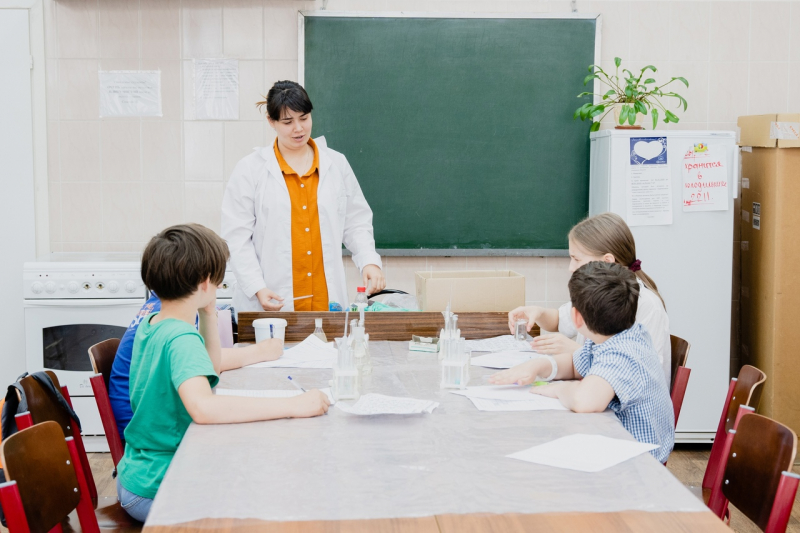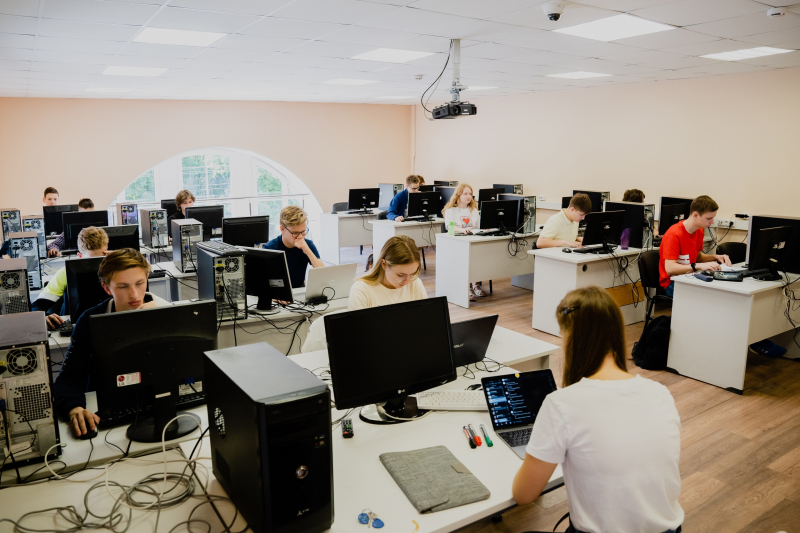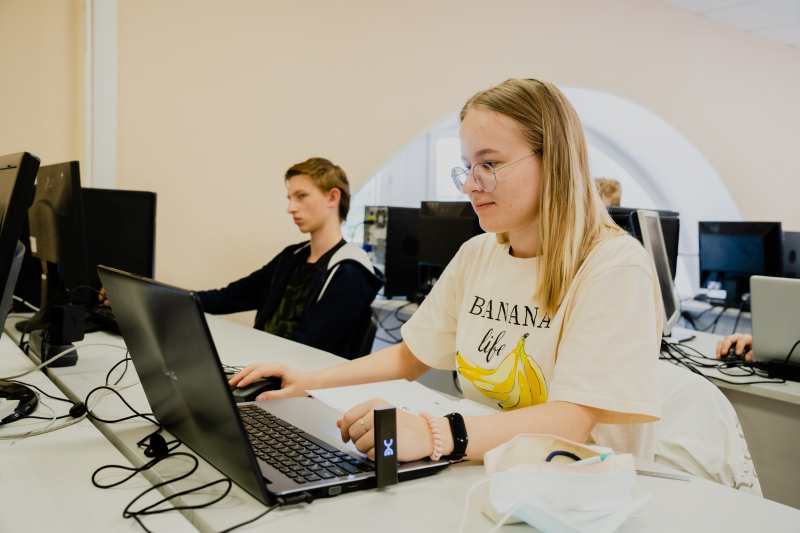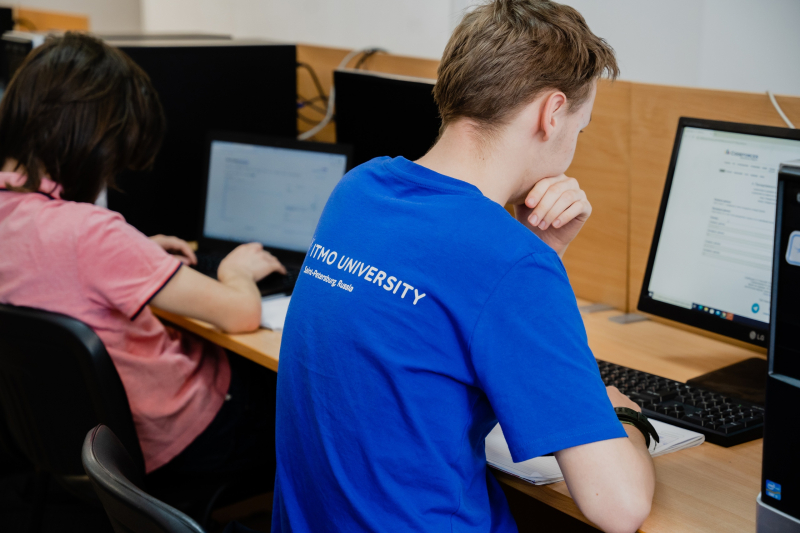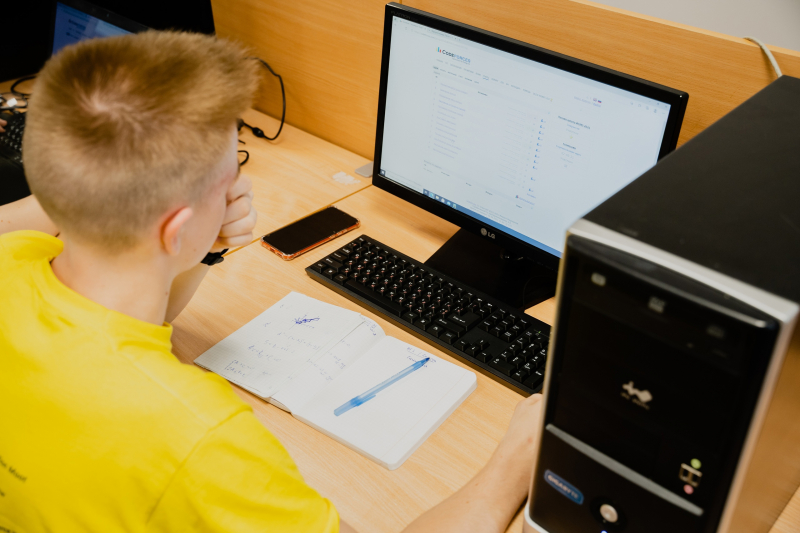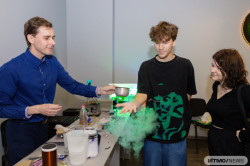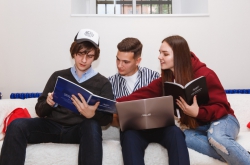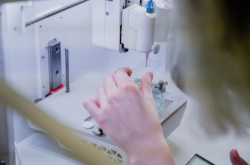The schools aim to help ambitious and talented students unleash their potential, acquire new knowledge and skills, and prepare for applying to ITMO University and other top Russian universities.
ITMO offers a variety of schools: some encompass the university’s main activity fields, including laser photonics, programming, and soft skills, while others allow prospective students to prepare for various competitions.
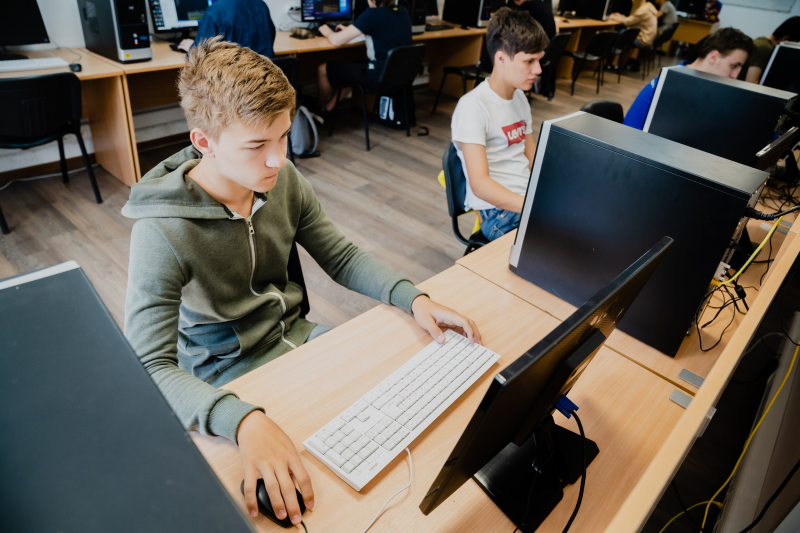
Summer School in Competitive Programming
Before applying, prospective participants can take a free test to figure out their career preferences and thus choose fields they might enjoy. Students are enrolled based on the results of tests and motivation letters. During their study, they receive special ITMO bonuses for active participation that they can later exchange for souvenirs from ITMO University.
In the article, the heads of educational programs share what school students are learning this summer and where they will be able to apply it.
Summer School at the Museum of Optics
Elena Bobritskaya, teaching and learning specialist at ITMO’s Museum of Optics and deputy head of ITMO's technopark for children
Our museum regularly holds workshops, festivals, and handmade zones but an entire summer school is something new for us. We turned our best practices into a three-day event on art and science. Every day, our participants were busy exploring new fields, so there was no time for boredom.
The first day was all about graphical perspective. We discussed its nature, basics principles of its drawing, differences between direct and indirect perspectives, and learned to tell them apart in art. During practical classes, students constructed perspective images and even built their own reverspective paintings.
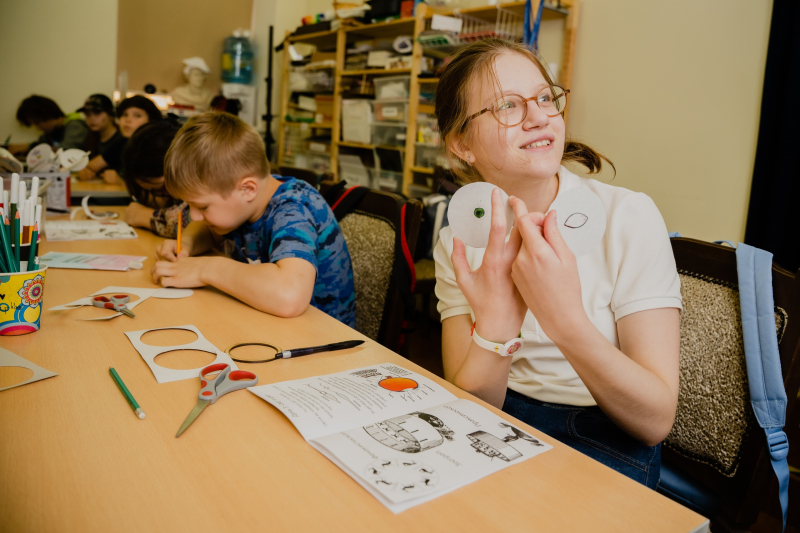
Summer School at the Museum of Optics
The next topic was cinema and its history. We devoted a few hours to a discussion on the fundamentals of animation and even mastered three animation techniques. We also have a separate course, during which school students look into the history of animation, review its different phases, and even create their mini-projects on different techniques. At the end of the course, students not only know all about cinema but also gain an extensive set of skills that can be further put into practice.
On the last day of the school, we studied light and color. School students explored the properties of light, built their first-ever spectroscope, and learned to distinguish the spectra of different light sources. The key challenge was to demonstrate the difference between light and color so that students who have not studied physics yet could understand. Plus, we got the hang of color mixing and the color wheel of Johannes Itten.
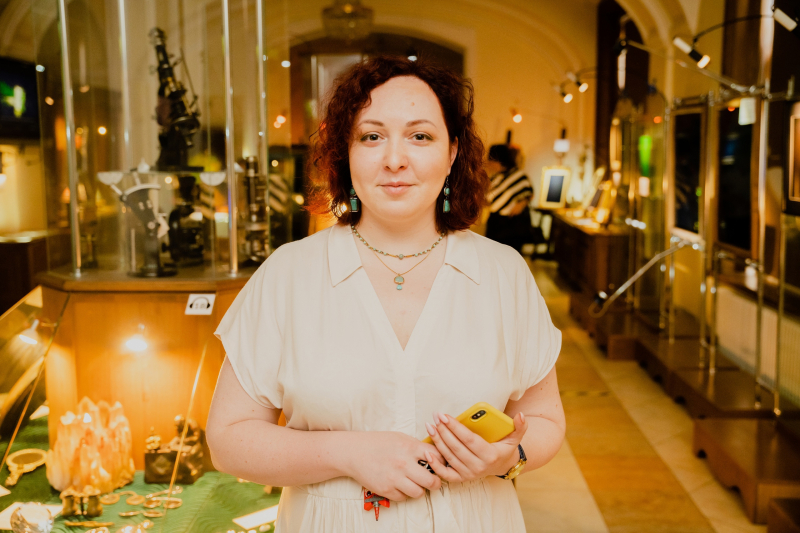
Elena Bobritskaya
Our main goal is to spur interest in science; demonstrate the beauty of knowledge and this world. We’re happy when our guests decide to be scientists and study at ITMO after their visits. Of course, we also strive to attract more prospective students to our university. That’s why it’s crucial not just to give them information but let them experience university life.
Summer School in Competitive Programming
Nikolay Budin, second-year Master’s student of the Programming and Artificial Intelligence program, Faculty of Information Technologies and Programming
Our faculty hosts the summer school every year. The teachers are mainly the faculty’s students who also conduct contest training for seventh-to-tenth graders during the academic year.
The school lasted two weeks. Every day included lectures and practical classes. That is, not only did students study various topics (dynamic programming, data structure, computational geometry, game theory, algorithms, and so on) but also put their knowledge and skills into action by solving competition-like problems.
We deliberately chose topics for the school – we wanted to make sure that they are good for beginners yet cover a wide range of fields.
Laser Technology Summer School
Pavel Varlamov, employee at ITMO’s International Laboratory for Laser Micro- and Nanotechnologies and associate professor at the Faculty of Nanoelectronics
The school is held every year. Its program may differ from year to year. Sometimes, we come up with some brilliant ideas for classes and introduce them into the course, other times we stick to our time-tested practices. But this year, the school went online, which made it possible for students from other Russian regions to join, too.
We aim to introduce school students to laser technology and thus help them understand whether they enjoy this field or not. Basically, this is a sort of career guidance but through practice.
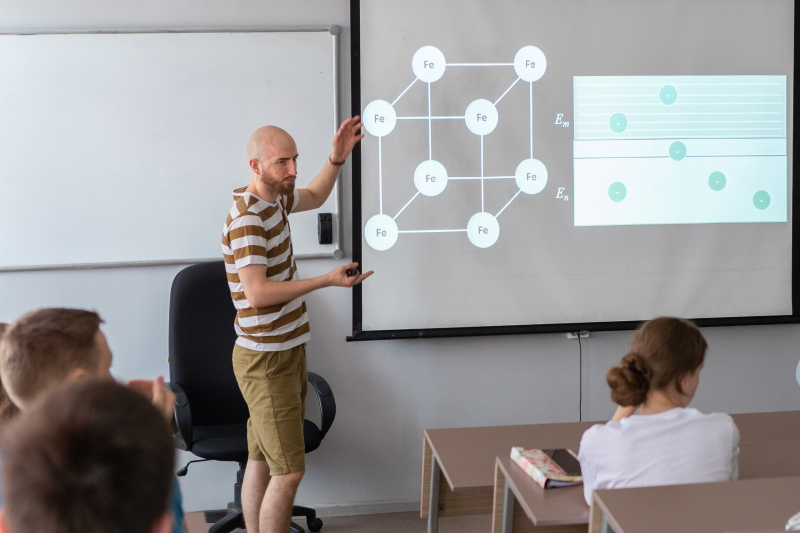
Laser Technology Summer School
We want our classes to be entertaining, easy-to-understand, and insightful. So, when talking about laser technology and our research, we make sure that our students understand us. Lectures are delivered by our last-year Bachelor’s, Master’s, and PhD students. Still new to the field, they can enhance their knowledge and share it with others. At the same time, they can learn from their teachers’ mistakes and bring their own teaching practices.
Apart from lectures, students also got to work on laser equipment and try their hand at laser cleaning or marking, for instance, as well as visit the Museum of Optics, FabLab, and the holographic laboratory. Thanks to the initiative of one of our students, participants could also learn how to create a spectroscope.
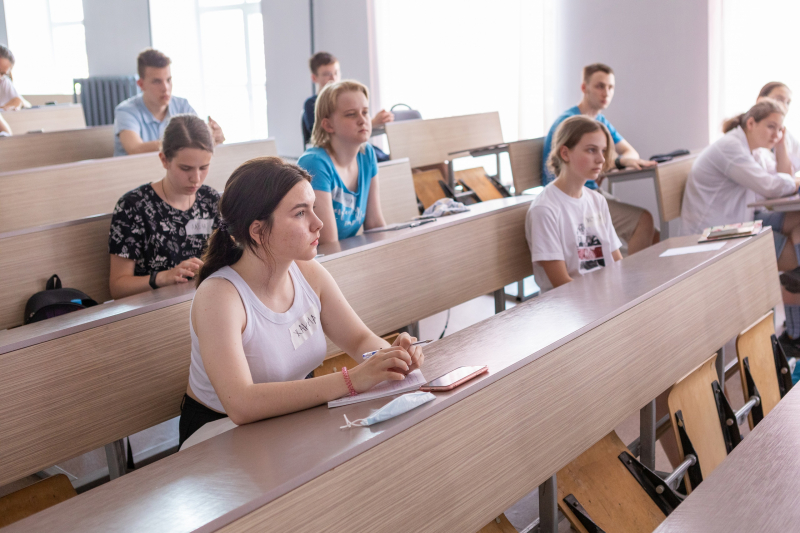
Laser Technology Summer School
This is a four-day course. At first, school students attend lectures, tours, and workshops, and then, on the last day of school, they present their projects. Earlier, participants could receive extra points when applying to a university, but this year, this practice was dismissed and the competition’s winners received memorable prizes. Despite everything, this is their chance to figure out whether this field is right for them or not.
Summer School in Chemistry
Tatyana Ryabova, associate professor, head of the Energy Systems Engineering program at the Faculty of Energy and Ecotechnology, and coordinator at Life Science School
Such summer schools are our traditional practice. We hold them annually as part of the Life Science School, which operates under ITMO’s School of Biotechnology and Cryogenic Systems.
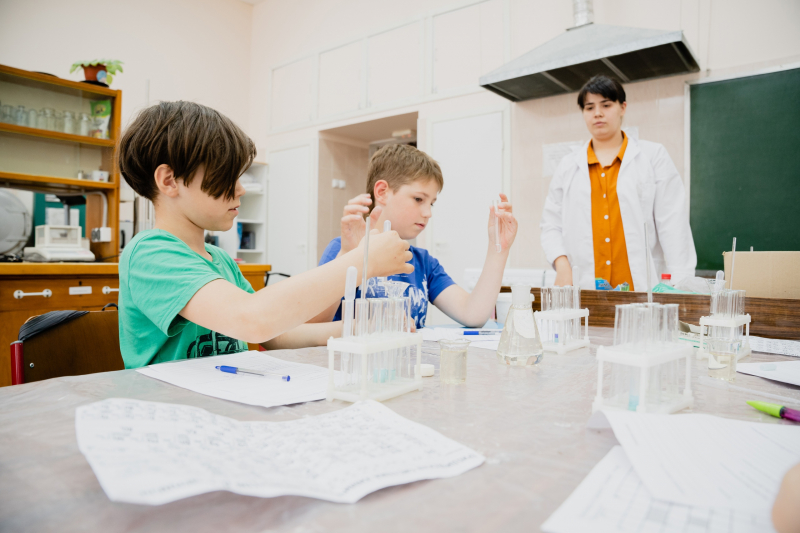
Summer School in Chemistry
This course is an amazing opportunity for school students to open the door to the world of chemistry and begin to explore its various fields. We introduce first-to-fifth graders to different elements and chemical phenomena, and teach them how to use lab equipment. The key focus lies in inorganic chemistry and its application in food, pharmaceutical industry, etc. Our mission is to provide background and prepare students for studying chemistry at school.
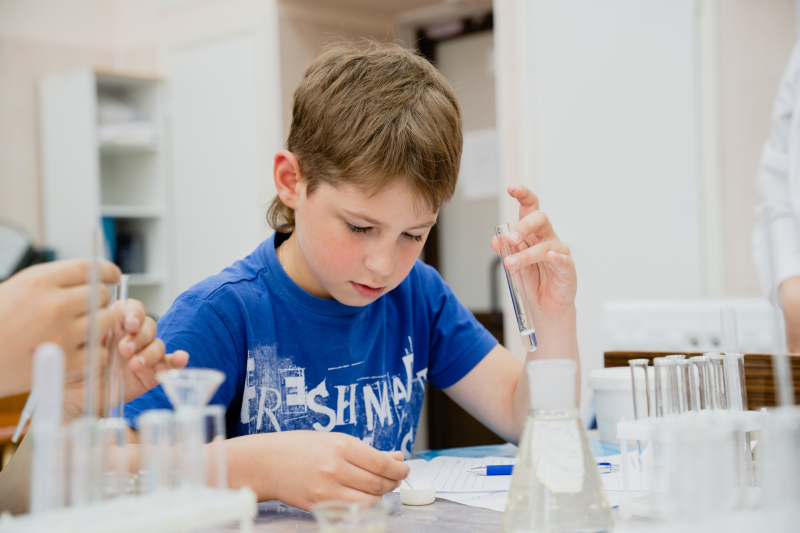
Summer School in Chemistry
To that end, the school offers a broad choice of entertaining formats: lectures, discussions, workshops, quests, quizzes, etc. We also let students work on their own projects. One of our teachers is Veronika Varik, a Master’s student at the Faculty of Biotechnologies who also gives Fascinating Chemistry classes at Life Science School.
In addition, our center runs schools for young biotechnologists, ecologists, engineers, and a physics course.
